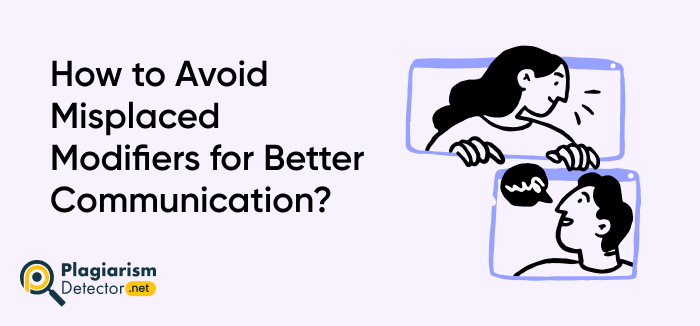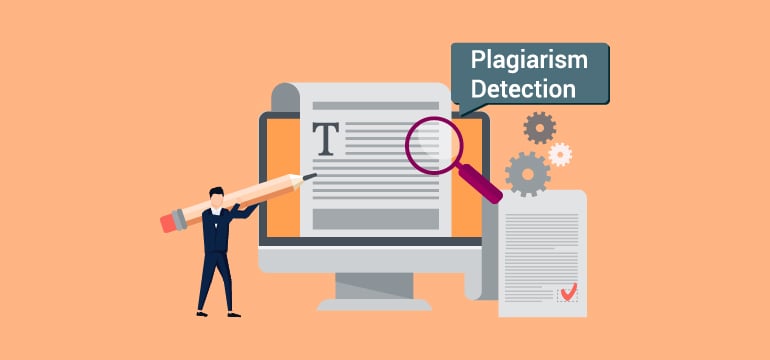How to Avoid Misplaced Modifiers for Better Communication?

Written communication necessitates command of several things. Yes, it is crucial to use proper language and spelling. However, written communication involves more than merely capitalizing words correctly and using the appropriate forms of verbs. One such thing is to avoid misplaced modifiers.
In this blog, we’ll solve the mystery of misplaced modifiers. We’ll start by explaining the concept of modifiers in great depth and providing examples. After that, we’ll impart some knowledge on how to prevent the misplacement of modifiers. So, without further ado, let’s begin.
Misplaced Modifiers — An Introduction to This Concept With Examples
Before delving into the details of misplaced modifiers, it is crucial to define what a modifier is. So, in writing, the term ‘modifier’ generally refers to a clause, phrase, or word that is essential for defining another word or phrase in a sentence. Let’s use an example to understand this definition better.
Consider a sample sentence: ‘She is a cute baby.’ As you can see, the adjective ‘cute’ describes the cuteness of the baby, which is a noun. So, in this statement, ‘cute’ serves as a modifier. And its incorrect placement will be considered an ambiguous, misplaced, or squinting modifier.
Hence, in simple terms, misplaced modifiers are the clauses, phrases, or words that are positioned apart from the term they intend to modify. Their separation often creates ambiguous or confusing meanings. For instance, consider the following sentence:
They bought a kitten for my brother they call Shadow.
In the above example, ‘they call Shadow’ seems to modify the brother’s quality instead of the kitten. So, it is a misplaced modifier.
Misplaced Modifiers vs. Dangling Modifiers — Are They the Same?
Misplaced and dangling modifiers are phrases that people frequently use interchangeably. Although there are similarities between these two types, they also clearly differ from one another.
Misplaced modifier refers to the placement of modifiers. However, the dangling modifier is a phrase or word that is not part of the sentence. Here is an example of the dangling modifier:
Happy that school was over, the afternoon was quite relaxing.
As you can see, the above example lacks the intended subject of the dangling modifier (Happy that school was over).
Tips for Avoiding Misplaced Modifiers
The issue of misplaced modifiers only occurs due to the wrong placement. So, by simply correcting the position, you can avoid the problem.
Place Modifiers Near the Words They Alter
Since modifiers add detail to other words, clauses, or phrases, they should be positioned as close as feasible to the noun or pronoun they modify. Otherwise, modifiers can create ambiguity or confusion. Here is an example that demonstrates the implementation of this tip:
Wrong: Asleep on top of the fridge, the dog startled me.
Correct: The dog, asleep on top of the fridge, startled me.
Be Wary of Adverb Modifiers
In writing, individuals often use adverbs to characterize verbs. However, their usage mainly results in the misplacement of modifiers. Therefore, we recommend avoiding such circumstances. Rather, you can use more detailed and specific terms to communicate the intended message. The following example showcases the application of this suggestion:
Incorrect: Quickly, he read the poetry.
Correct: He quickly read the poetry.
Modifiers Must Agree in Number and Case With the Words They Modify
The case of modifiers becomes more complicated with the involvement of plurals or possessiveness. So, if this situation represents your use case, ensure that the modifiers match the words they modify in terms of both number and case. For instance, a plural noun should logically have a plural modifier. In the same way, a possessive pronoun should be included in the modifier if it relates to a possessive noun.
Utilize an AI-Driven Grammar Checker
Manually checking compliance with all the above rules can sometimes be difficult. Therefore, we advise using an AI-powered grammar checker to help avoid the unintentional misplacement of modifiers. Such a tool uses artificial intelligence algorithms trained to comprehend the text and provide recommendations accordingly.
Beware! Colon vs Semicolon: What’s the Difference?
Beware! How to Use Commas Correctly in Your Content?
Beware! Affect Vs Effect: Be Sure to Use the Right Word Every Time
Final Words — The Conclusion
To sum up, modifiers are necessary in writing because they aid in conveying the desired message. Therefore, their misplacement is one of the most prevalent grammatical errors. But don’t worry because it is simple to fix the issue of misplaced modifiers. All you need to do is align the modifiers with the word(s) they alter and monitor their placement throughout the content. You can also get assistance from an AI-driven grammar checker. This way, you can embrace clarity while effectively communicating your intended message.




